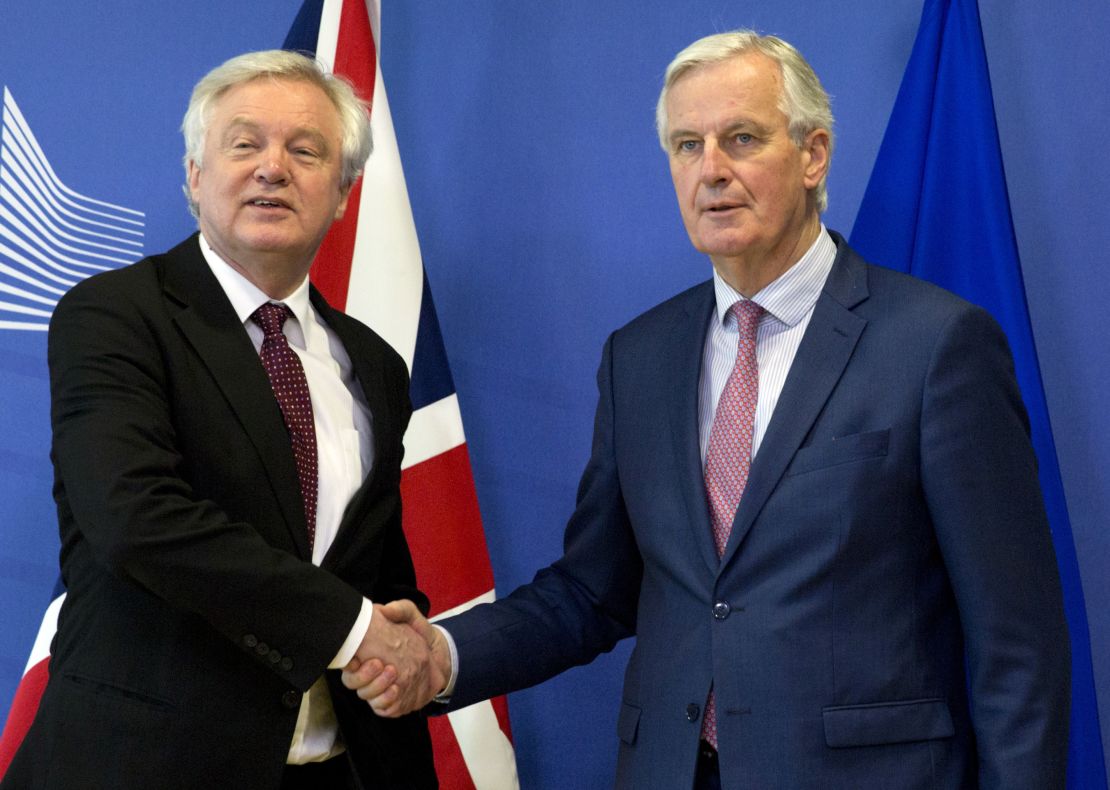The UK has reached a joint legal agreement with the European Union on the legal terms of a Brexit transition deal, a milestone development in the tortured negotiations to extricate Britain from the bloc.
Under the terms, the UK will be able to negotiate trade deals with other countries during the 21-month transition, which begins when Britain officially leaves the EU at the end of March 2019.
But in order to secure the deal – which gives a degree of certainty for businesses – the UK was forced to make concessions, including on the rights of EU citizens who arrive during the transition period. London also had to accept a “backstop” deal to avoid a “hard” Irish border that would keep Northern Ireland subject to EU law.
Speaking at a news conference in Brussels on Monday, the EU’s chief negotiator Michel Barnier said agreement on the draft legal text for withdrawal was a “decisive step” towards Brexit.
He said the text, to be presented to EU heads of government on Friday, will be “the international agreement for an ordered withdrawal of the UK from the EU.”
The announcement came after “intense” negotiations between technical and legal experts from both sides over the past few days, Barnier said.
Speaking alongside the UK’s Brexit Secretary David Davis, Barnier said: “What we are presenting today is a joint legal text, which to my mind constitutes a decisive step.”
Davis added that “a good deal for the UK and the European Union is closer than ever before.”
Trade deals
The provisional accord, which is not yet set in stone, includes the terms for a 21-month transition period after Brexit, which is scheduled to happen on March 29, 2019, to allow business to adjust.
In what could be seen as a big win for the UK, the draft agreement confirms that the UK may sign trade deals with other nations, as long as they don’t come into force until the end of the transition period.
Sterling jumped against the euro on the news as the markets cheered the announcement.

Irish sticking point
One sticking point that could unravel the agreement is the issue of the border between the Republic of Ireland, which is, and will remain a part of the EU and Northern Ireland, which is part of the UK.
“We must have a workable and practical solution to avoid a hard border and protect north south cooperation,” Barnier said.
Barnier said the UK has agreed in principle to the EU’s “backstop” plan for the status of the Irish border, under which Northern Ireland would remain part of the EU’s customs union if there is no better idea to maintain the seamless flow of goods and people across the border.
The EU is concerned a “hard border” between Ireland and Northern Ireland, believing it could jeopardize the 1998 peace accord that ended decades of sectarian violence in the UK province.
“We agreed today that the backstop solution must form part of the legal text of the withdrawal agreement,” Barnier said.
The remaining 27 EU countries insist that the must agree to terms on Northern Ireland before it will sign off on the final version of the divorce agreement and move on to future trade agreements between the UK and the EU, its largest trading partner.
Barnier will this week discuss the agreement with EU foreign ministers, the European Commission and on Friday, EU heads of government, apart from UK Prime MInister Theresa May who is not invited.

